No silver bullet for explaining rise in Lincoln Park crime
Some Lincoln Park residents want more police patrols in the area in response to high-profile incidents.
Credit: Raphael Cannesant | The DePaulia/The DePaulia
Under Lightfoot’s discretion, there has been a higher presence of CPD in CTA stations.
On a chilly February night, Lincoln Park residents and area police huddle near the entrance of the North & Clybourn Red Line stop. Some have their dogs with them, some brought their children and some — who don’t appear to belong to media organizations — are filming the event on their cellphones.
They’re here because 43rd Ward Alderman Michele Smith and police from the Chicago Police Department’s 18th district organized a “friendly loitering” and neighborhood walk-through in response to concerns about crime in the area.
The number of crimes between Jan. 1 and Feb. 21 has not changed compared to the same period last year, police data from the Chicago Data Portal shows.
However, crime in Lincoln Park went up by 40 percent last summer compared to the previous year. The 43rd Ward, which is where the neighborhood — including DePaul’s main campus — is located, saw 2,033 crimes between Jan. 1 and Sept. 9, 2019. That’s 581 more crimes than the ward saw up until that point in 2018.
Rising crime was a concern last summer, and recent high-profile crimes have some residents on edge more than ever.
In late February, a 15-year-old boy was stabbed in Ranch Triangle — about a block away from the North and Clybourn Red Line stop — and ran to the station for help. He was taken to Lurie Children’s Hospital in critical condition, according to police.
A spate of thefts and robberies of both individuals and high-end shops in the Gold Coast and River North has also gotten attention.
In each incident involving people on the street, a group of two or three males attack and rob someone before fleeing in a white SUV, Chicago police said. Meanwhile, Magnificent Mile stores like Gucci have been robbed in smash-and-grab incidents
Last July, a recent DePaul graduate was slashed in the throat while walking near the Lincoln Park campus at about 2 a.m. A man was arrested in connection with the incident in August.
At 38 percent, thefts make up the largest proportion of crimes in the 43rd Ward so far this year.
Even last summer, violent crime — which includes assault, battery, criminal sexual assaults, homicides and battery — made up just over 18 percent of all crimes in the ward.
But that doesn’t reassure some residents, who want more police patrols devoted to the area.
Lincoln Park resident Maria Kreighbaum said she woke up to car alarms last weekend and has been especially afraid since she heard about the stabbing near the Red Line. She said incidents like this have been going on for about a year now and she’s been trying to get others to listen to her concerns, especially since the incidents over the summer.
“Every single day of my life is stressful over this,” she told The DePaulia.
Kreighbaum said police patrols have always been light in the area since she moved there about 10 years ago and believes Lincoln Park residents deserve better.
“I’m sorry we don’t have dead bodies on every corner, but if that’s our new standard, I don’t know what to say,” she said.
It’s impossible to nail any single reason as an explanation for the increase in crime. But Robert Stokes, a professor of public service at DePaul, said there are a couple changes that he suspects could be contributing factors: bail reform efforts from the Cook County state’s attorney’s office, and reassigning of police patrols to neighborhoods with higher crime overall.
Since Cook County State’s Attorney Kim Foxx was elected roughly two years ago, she has enacted a series of reforms meant to reduce the prison population. The office, which is in charge of prosecuting crimes in Chicago, has drastically reduced the number of charges for low-level crimes, such as shoplifting and drug offenses. A Marshall Project investigation found that, under Foxx,
the office has turned away more than 5,000 cases that would have been pursued by previous administrations.
“The tradeoff [to reforms] is that a lot of families and communities suffer,” Stokes said. “The question is how much people are willing to tolerate in order to get the positive aspects.”
When police arrest someone in connection with a crime, it is up to the Cook
County state’s attorney’s office to prosecute the case on behalf of the city or drop charges if deemed appropriate. The office also decides which type of bond, if any, should be assigned to a case. C bonds, for example, require a cash defendant or someone on their behalf to put up the entire amount to get that person released from jail. Detainer bonds, which are most common, require 10 percent of the bond to be paid, plus collateral. Others require no cash to be put down at all for release, such as signature bonds, in which a judge sets a dollar amount due for those who don’t show up to court. Finally, recognizance bonds are those in which defendants swear to show up to court on their honor alone.
“Most people agree there’s too many people in prison, but most people wouldn’t say people who commit violent crimes should be out,” Stokes said.
Foxx’s reforms are part of a heated democratic primary election for Cook County state’s attorney. Most of her opponents — including the potential Republican candidates the Democratic nominee will face in the fall — argue that Foxx’s reforms have contributed to a rise in crime across the city.
Balancing reform, accountability and tough prosecutions was a common theme at a forum held at DePaul’s Lincoln Park campus in late February. Foxx was invited but did not attend, forum organizer Kenneth Dotson told The DePaulia.
“Being progressive doesn’t mean we have to coddle criminals,” Democratic candidate Bob Fioretti said in response to a question about rising crime in the North Side. “It’s not that hard to balance.”
Another Democratic candidate, Bill Conway, emphasized the importance of using jails to hold people suspected of violent crimes.
“We need to remember what the purpose of jail is,” Conway said. “Jail is a place for people that are a danger to the community. We don’t want to be putting people there who are poor, or addicted or mentally ill.”
Fioretti, when asked about the increase in more brazen crimes, said criminals “feel like they’re not going to be prosecuted” because of Foxx’s more lenient policies.
At a similar forum in Bridgeport, Foxx defended her office’s changes to the cash bail system as an important reform, then emphasized several of the other reforms she has implemented.
That included expunging the records of people convicted of minor cannabis offenses, creating a fraud hotline for undocumented immigrants and not allowing ICE into courtrooms.
Progressives, including Bernie Sanders and Elizabeth Warren, have endorsed Foxx because of her reform efforts. States across the U.S., including California, New Jersey and Alaska, have limited the use of cash bail. New York went as far as restricting its use entirely for certain crimes, including burglary, assault without serious injury, many drug offenses and even certain cases of arson and robbery, according to The New York Times. These reforms have received similar criticisms about their impact on public safety.
Chicago police generally have not had a positive relationship with the state’s attorney’s office since Foxx took over.
Last July, the Fraternal Order of Police sent Foxx a letter saying they have “a deep mistrust” of her office and issued a vote of no confidence.
A Chicago Tribune investigation from February showed that a report from Cook County chief judge Timothy Evans was misleading in saying that crime has not gone up since bail reform measures were implemented.
Evans’ analysis said only 147 felony defendants who were released from custody in the 15 months after bail reform went into effect went on to be charged with new violent crimes. However, according to the Tribune’s investigation, the analysis only considered six offenses as violent crimes, leaving out domestic battery, assault, assault with a deadly weapon, battery, armed violence and reckless homicide. It also only included defendants whose original charge was a felony, excluded three individuals with murder charges whose first charges occurred before bail reform and had numerous errors in data entry, among other discrepancies.
But not everyone agrees that bail reform is behind the rise in crime, and even those who say that it’s contributing say it’s probably not the only factor.
Stokes, the public service professor, said police may also be reassigning patrols from safer neighborhoods to those with more crime.
Chicago police responded to a records request saying the department doesn’t keep lists of patrols assigned to a specific district on any particular day.
However, there are cases of officers being reassigned to meet needs in different areas.
For example, Mayor Lori Lightfoot announced earlier in March an increase in the number of police patrolling the CTA after a spike in crime on the system. In other instances, police have saturated areas to help catch and prevent DUI’s, according to past alerts put out by CPD.
The Chicago city budget shows CPD’s Bureau of Patrol has a higher budget for 2020 than it did in 2019. However, it’s unclear if that means there are more officers on patrol or if the money is being spent another way.
Also at play is Rahm Emanuel’s closure of six city-run mental health clinics in 2012.
Cook County Sheriff Tom Dart wrote in an op-ed that the “only consistently funded mental health center in the Chicago area is the Cook County Jail,” and that about one-third of inmates suffer from “serious” mental illnesses. Dart wrote that the vast majority of those inmates are charged with low-level crimes of survival, such as prostitution, trespassing and disorderly conduct.
A 2009 report from the University of Chicago Crime Lab said we must “do a better job of identifying and treating mental health problems among young people before these disorders lead to violence.”
The Loop, which has also seen an increase in crime over the past year, according to a DePaulia analysis of crime data, has a significant number of homeless individuals, Stokes said.
“A lot of those crimes in the central business district can be attributed to transient people,” he said.
Alec Brownlow, a professor of geography at DePaul, said that although crime increases “can never be chalked up to a silver bullet explanation,” he doesn’t think bail reform is behind it.
“I’m more prone to believe Lincoln Park is going through changes in regard to population, proximity and perception,” he said.
Brownlow added that many of these crimes, particularly thefts, are crimes of opportunity and are “part of the urban landscape.”
“If most are occurring after midnight, I’m not sure that’s something to be concerned about,” he said.
DePaul Public Safety does not have armed police and instead relies on a partnership with CPD to provide those services, the department previously told The DePaulia. Bob Wachowski, head of the university’s public safety, and DePaul spokesperson Carol Hughes did not respond to a request for comment on whether or not that may change after the recent spike in crime.
And not all DePaul students are overly concerned about crime, despite the recent high-profile cases.
Jordan Gary, a master’s student in product innovation & computing who has lived in Lincoln Park for six years, said the issue may be more about perception. He said apps like Ring, Nextdoor and multiple neighborhood Facebook groups may simply be bringing more attention to crimes in the area.
“I think that between CWBChicago and these apps, our neighbors are just hearing about it more and more often,” he said. “Very much like how child abductions are actually down, but if you watch Nancy Grace you’d think they were happening so frequently it would be safer to lock your child in the basement.”
That doesn’t absolve Lincoln Park residents concerns, however.
At the community event off the North & Clybourn station, Alderman Michele Smith said she will continue pushing for more efforts from police.
While walking the neighborhood with police, some residents repeatedly asked when the additional patrols promised would arrive, as they had yet to see them in the area. Police said they were on their way, but would not specify when residents could expect them.
Police at the event did not know how patrol assignments are determined when asked by The DePaulia.
“With the limited resources we have, we’re doing the best we can,” police said.
At the end of the day, the city has a limited budget and can only do so much to satisfy every community. That means Lincoln Park may not always get as many patrols as it wants.
“I think the days of under-policing communities of color [to satisfy the security needs of the wealthy] are over,” Brownlow said.


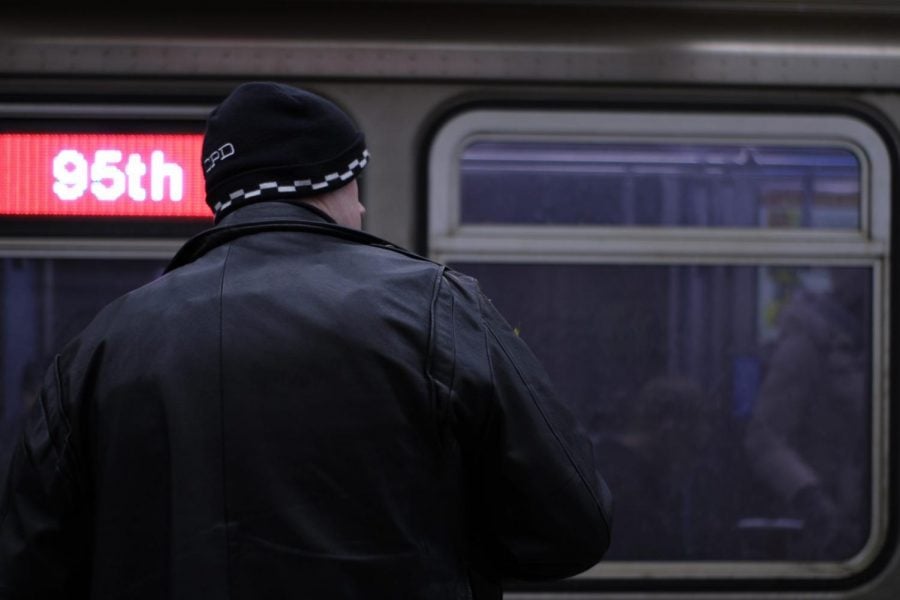

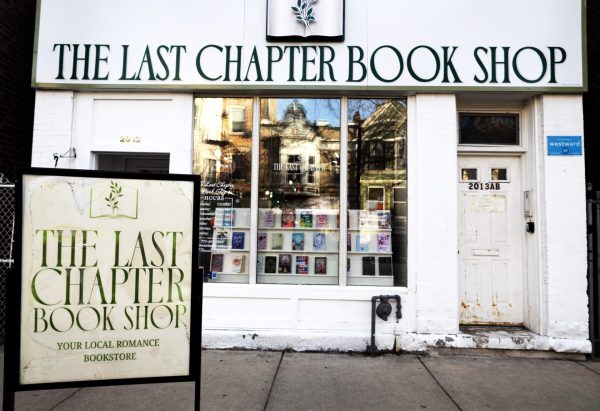
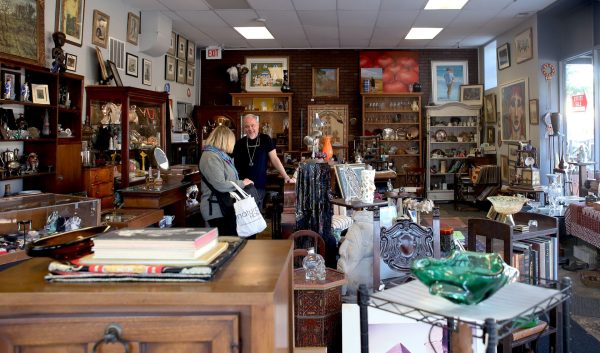
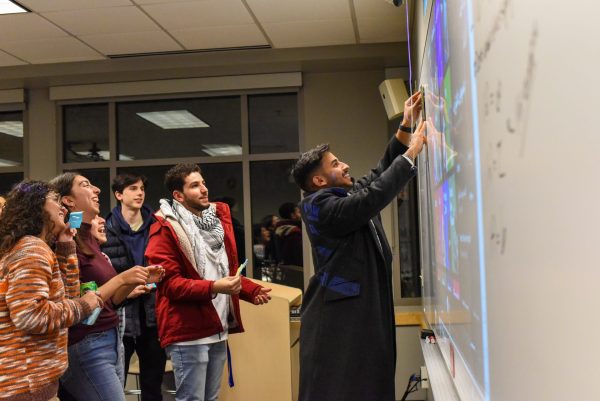
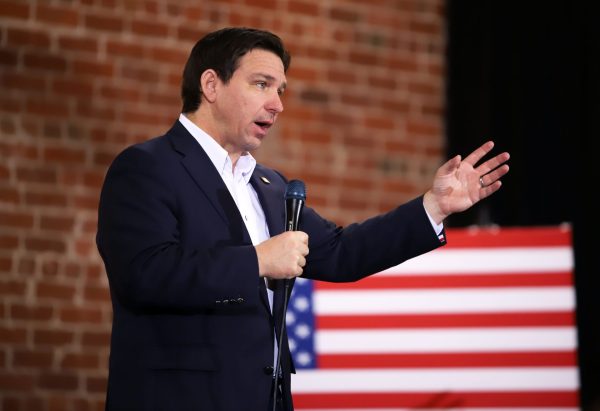
Ted Warinowski / Jul 25, 2020 at 4:33 am
My daughter lived near Belmont station about 5 years ago. You could see more crime during daylight hours that went unreported or not responded to by the police as graffiti and vandalism. She left to Texas. Glad. Liked Chicago but not worth the risk.
Amy / Mar 11, 2020 at 10:10 pm
There is another type of crime happening in Lincoln park and that is environmental crime. Please help us fight it as it impacts us all.
Michele Harland / Mar 10, 2020 at 11:02 pm
Kim FoxX
Has been a disaster for my neighborhood and the city in general. Her office is just not prosecuting criminals and she does not deserve reelection. Please, everyone affected by crime and those living in fear, get out and vote her out!